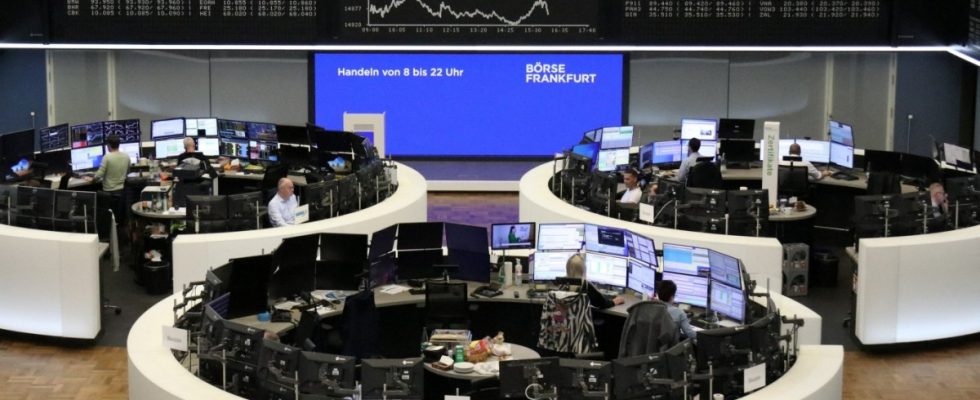When stock market manager Serkan Batir appeared in front of the camera on Monday to speak to private investors, he probably imagined the whole thing differently. Batir talked about the German leading index DAX, whose fortunes he leads in the stock exchange group. In the background he had specially positioned a small miniature racing car, mind you, backwards. With this, the stock exchange manager pretty much nailed the situation on the trading floor: the stock market is going into reverse, and at a rapid pace.
Most recently, the Dax had posted losses for five weeks in a row, and at the end of the week the index even fell below the 15,000 point mark. On Monday, too, the burgeoning optimism on the trading floor was over after just a few minutes of trading, and the barometer with the 40 most important German stocks continued to fall, with the Dax now only trading at 14,630 points. The leading index has fallen so sharply that experts are now officially talking about a correction. Mood barometers on the US stock exchanges even show “extreme fear”. But some experts see opportunities in this.
At the beginning of the current week, investors initially worried about an escalation in the Middle East: So far, the war in Israel has hardly had any effect on the major stock exchange companies. However, if the situation in the country escalates, that could change in a matter of seconds. “This is an incalculable element when predicting the direction of the market,” says equity strategist Martin Roth from Commerzbank. The fact that the Israeli military accidentally shelled Egypt over the weekend and Iraqi militias attacked US forces did not inspire confidence.
Stock market experts are watching particularly closely to see whether the conflict spreads to the major crude oil states. If Iran were to block the Strait of Hormuz, a third of daily global oil supplies would be affected. If several Arab countries were to cut their oil exports in response to a possible Israeli ground offensive, this would affect an already strained oil market. “If the states were to literally pour oil on the fire, the consequences would be immediately apparent on the stock markets,” says equity strategist Uwe Streich from Landesbank Baden-Württemberg. The war in Israel is currently dampening the mood on the stock markets and poses risk potential in the long term.
However, two American women’s names are much more important for the slide in prices on the stock market. For years, investors have liked to use the abbreviation “Tina” when things were going well on the stock markets: There is no alternative, said the stock market experts. In German: There was no alternative to stocks on the capital market; after all, bonds didn’t pay any interest.
But now “Tina” has long since become “Tara”: There is a reasonable alternative, they now say. Because yields on comparatively safe ten-year US government bonds rose to more than five percent on Monday for the first time since 2007, there is now a profitable alternative to stocks. Also because investors are currently demanding high interest rates on new bonds. “With five percent returns for bonds, some investors think carefully about whether they still want to bear the risk of stocks,” says DAX expert Uwe Streich.
There are alternatives to stocks again: bonds
In this problematic situation between interest rates and global geopolitics, another negative factor could be added to the global stock markets this week: Microsoft, Google parent Alphabet, the Facebook group Meta and Amazon are presenting their figures. Since the seven largest technology stocks in the USA already make up more than 25 percent of the leading index S&P 500, they have now become a relevant factor for global stock market sentiment. “Regardless of whether you have positive or negative news to report,” says stock expert Streich, “it has a complete impact on the entire market.”
With the tech companies and the situation in Israel, two factors are overshadowing the situation on the stock exchanges, which can certainly be described as a coin toss. The European Central Bank is also meeting this week and the US Federal Reserve Bank is meeting next week. “Until then, the stock market will remain stricken and in danger of slipping,” says Jürgen Molnar from the Robomarkets brokerage firm.
However, some see this pessimism as the reason for rising prices: if the mood is extremely bad, things can only get better. However, it is even easier for long-term private investors to simply ignore the ups and downs of the stock markets, because over a period of more than 15 years, the world stock markets have consistently exceeded their previous highs. At some point the miniature racing car in the DAX manager’s room will move forward again.

